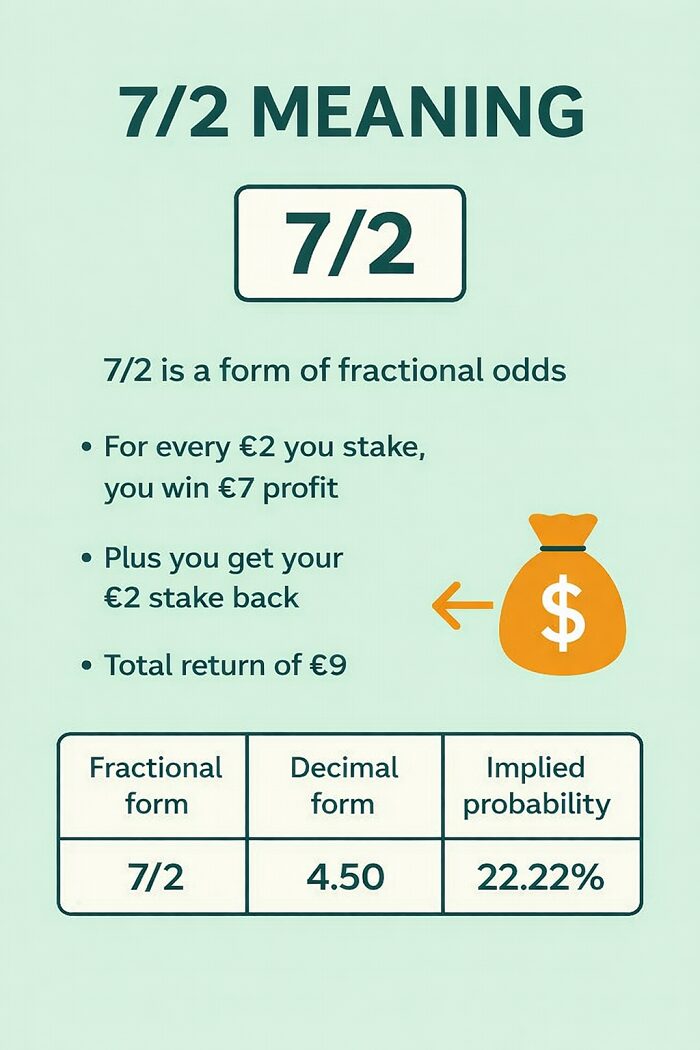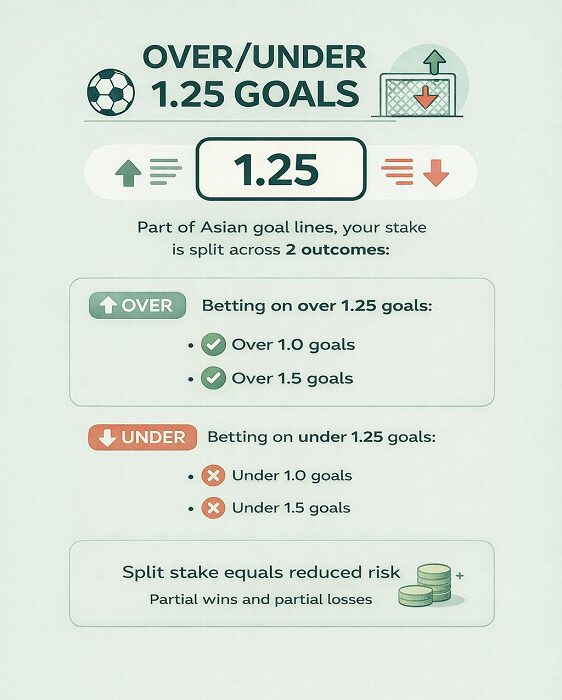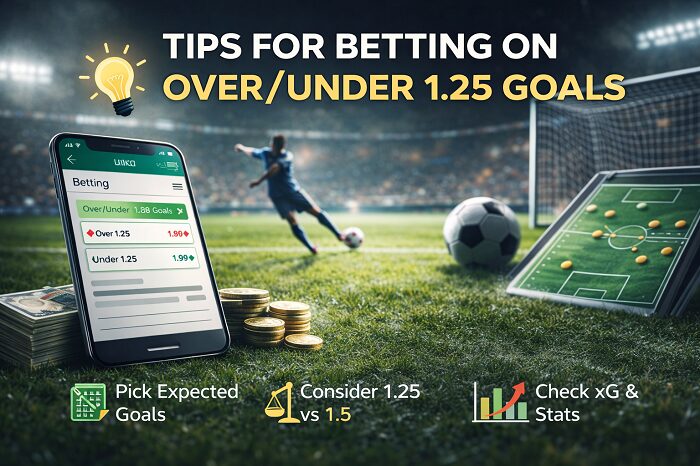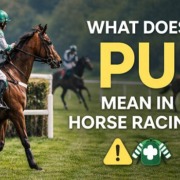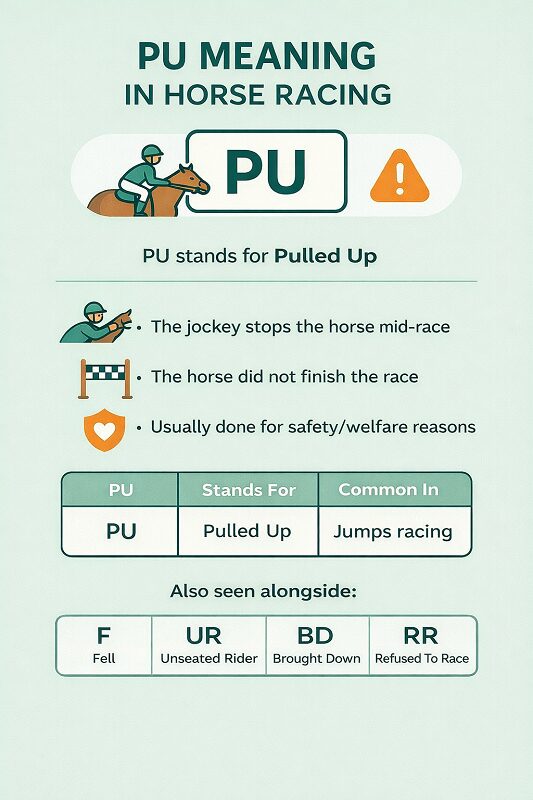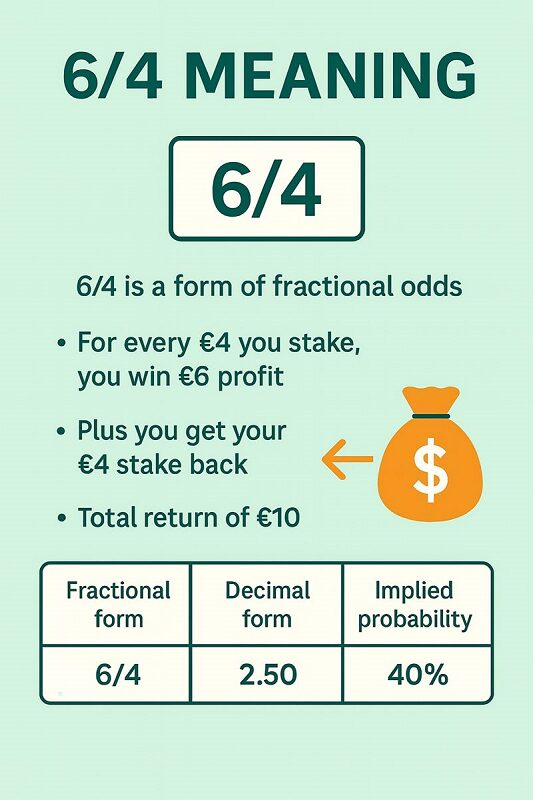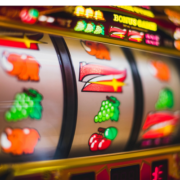Zero Risk Betting Strategy: Does It Really Exist?
If you’ve ever searched for a zero risk betting strategy, you’re certainly not alone.
The idea of making money from betting without the danger of losing your hard-earned cash is hugely appealing—especially in a world where most traditional betting strategies involve volatility, losing runs and emotional pressure.
But here’s the honest truth upfront:
There is no such thing as a completely zero-risk betting strategy.
That said, there are methods that come very close—far closer than conventional sports betting—and when applied correctly, they can reduce risk to an absolute minimum.
Some are so low-risk that many people use them as a reliable side income rather than gambling in the traditional sense.
In this guide, we’ll break down:
- What people really mean by a zero risk betting strategy
- Why “zero risk” is mostly a marketing term
- The closest real-world alternatives to zero risk betting
- How matched betting and arbitrage fit into the picture
- The hidden risks you still need to be aware of
Whether you’re a beginner or someone looking for safer betting methods, this article will help you separate reality from hype.
What Is a Zero Risk Betting Strategy?
A zero risk betting strategy is usually described as a way of betting where the outcome does not matter—you either win or break even, with no chance of losing money.
In practice, this means:
- You are not relying on predicting results correctly
- You are not exposed to long losing streaks
- You are using pricing inefficiencies, promotions, or opposing bets
Most strategies marketed as “zero risk” actually aim to remove uncertainty, rather than relying on sporting outcomes.
This is very different from traditional betting, where profit depends on being right more often than the odds imply.
Why True Zero Risk Betting Doesn’t Exist
Before we dive into the closest alternatives, it’s important to understand why true zero risk betting isn’t realistic.
Even the safest betting approaches still involve some level of risk, such as:
- Human error when placing bets
- Bookmakers changing rules or voiding bets
- Account restrictions or closures
- Liquidity issues on betting exchanges
- Technical problems or pricing changes
None of these risks relate to the match result—but they do exist.
So when people talk about a zero risk betting strategy, what they really mean is:
With that in mind, let’s explore the safest approaches available.
Matched Betting: The Closest Thing to Zero Risk Betting

Matched betting is the strategy most people are referring to when they search for a zero risk betting strategy — because, when it’s done correctly, your profit comes from bookmaker promotions, not from predicting winners.
It’s not truly “zero risk” (we’ll cover why), but it’s about as close as betting gets to turning offers into repeatable, low-variance profit.
What Is Matched Betting? (In Plain English)
Matched betting is a method of profiting from bookmaker bonuses by placing two bets on the same event that effectively cancel each other out:
- A back bet with a bookmaker (betting for an outcome)
- A lay bet on a betting exchange (betting against that same outcome)
Because you’re backing and laying the same selection, you’re not trying to “beat the bookie” with prediction skill. Instead, you’re using maths to create a situation where:
- You either win at the bookmaker and lose at the exchange, or
- You lose at the bookmaker and win at the exchange
Either way, you end up in a controlled position — and the bonus (free bet / bet credit) is what generates the profit.
If you really want to get the most out of matched betting, there are comprehensive matched betting packages available like Outplayed, showing you how to match bet and revealing all the best offers every day.
You can check out our full review of Outplayed here, where we made £2,822 profit during our live trial by utilising matched betting.
Back vs Lay: A Quick Example
Let’s say Arsenal are playing Chelsea.
- Back Arsenal at a bookmaker at 3.0 (2/1)
- Lay Arsenal at an exchange at roughly similar odds (say 3.05)
If Arsenal win, your bookmaker bet wins, but your lay bet loses.
If Arsenal don’t win, your bookmaker bet loses, but your lay bet wins.
You’re deliberately setting it up so the match result doesn’t “hurt” you the way it does with normal betting.
How Matched Betting Works Step-by-Step

Matched betting usually starts with welcome offers (the big, easy profits), then moves into ongoing promotions.
Here’s the typical flow:
1) Choose a Qualifying Bet (QB)
Most offers include a condition like:
- “Bet £10, get a £10 free bet”
- “Bet £20, get £20 in bet credits”
That initial “bet £10” is your qualifying bet. You’re not expecting to profit much here — the goal is to unlock the free bet at minimal cost.
2) Place the Back Bet at the Bookmaker
You place your qualifying bet as normal.
Example: Back Arsenal £10 at odds of 3.0.
3) Place the Lay Bet on an Exchange
On a betting exchange (like Betfair Exchange), you “lay” Arsenal — meaning you’re betting they won’t win.
The exchange acts like a marketplace: you’re effectively taking the role of the bookmaker.
4) The Two Bets Cancel Each Other Out (Mostly)
If you calculate the lay stake correctly, your potential loss is kept very small regardless of what happens.
That small cost is often called the qualifying loss.
5) Receive the Free Bet / Bet Credit
Once the qualifying bet settles, you receive the bonus.
6) Convert the Free Bet Into Cash (The Profit Step)
This is where the real profit happens.
You use a “free bet conversion” method:
- Place the free bet with the bookmaker
- Lay the same selection on the exchange
- The result doesn’t matter — you’re converting the bonus into withdrawable cash
Depending on the offer type and odds, it’s common to convert 70%–85% of the free bet value into real profit (sometimes more).
Why Matched Betting Is So Low Risk (And Why It Feels “Risk-Free”)
Matched betting is low risk because it removes the two biggest dangers of traditional betting:
1) You’re Not Relying on Being Right
In normal betting, your profit depends on predicting results correctly.
In matched betting, you’re covered on both sides, so the match is just a “vehicle” used to trigger the offer.
2) There’s No Long-Term Variance or Losing Runs
Traditional betting strategies have losing streaks baked in — even good ones.
Matched betting is mainly about:
- correct maths
- correct execution
- correct interpretation of terms
So rather than suffering a run of bad luck, the main danger is user error.
3) You Know Your Outcome Before the Match Kicks Off
With standard betting, you can’t know your result until the final whistle.
With matched betting, you can usually calculate:
- the qualifying loss (if any)
- the expected profit from the free bet
…before you place the bets.
That predictability is a big part of why it’s often described as the closest thing to a zero risk betting strategy.
Why Matched Betting Isn’t Completely Zero Risk (The Real Risks You Must Acknowledge)
Matched betting is low risk, but it’s not perfectly risk-free. The risks mostly fall into four categories:
1) Human Error (The Biggest One)
Most matched betting losses come from avoidable mistakes, such as:
- backing the wrong market (e.g. “to qualify” vs “to win”)
- laying the wrong selection
- entering the wrong lay stake
- using the wrong odds in a calculator
- missing an offer restriction (min odds, specific markets, etc.)
- placing bets in the wrong order and getting caught by odds moves
A single mis-click can turn a controlled position into a real gamble — so accuracy matters.
How to reduce this risk:
- double-check selection, market, odds, stake before clicking “Place bet”
- use a matched betting calculator every time
- keep a simple checklist you follow on every offer
2) Odds Movement and Timing Issues
Odds can change quickly, especially on popular events.
This matters because matched betting relies on back and lay odds being reasonably close. If the odds drift while you’re mid-process:
- your expected loss can increase
- the trade becomes less efficient
- in rare cases you might not be able to fully match both sides cleanly
How to reduce this risk:
- place back and lay bets as close together in time as possible
- avoid low-liquidity markets
- stick to mainstream sports/events early on
3) Offer Terms and Bookmaker Rules
Promotions are never “free money” without conditions.
Common terms include:
- minimum odds (e.g. 1.8 or 2.0+)
- specific markets only (e.g. sports betting, not casino)
- maximum free bet winnings
- free bets not returned with stake (SNR)
- time limits (must use within 7 days)
- restrictions on cash-out, partial cash-out, or voids
If you misunderstand terms, your expected profit may shrink — or you may not qualify at all.
How to reduce this risk:
- read the promo T&Cs every time
- keep notes on which bookies have “quirks”
- avoid complicated offers until you’ve done the basics
4) Gubbing and Account Restrictions (The Long-Term Risk)
This is the big one people don’t mention when selling matched betting as “risk-free”.
Bookmakers often restrict accounts they think are “bonus focused”.
You might experience:
- stake limits (you can only bet small amounts)
- promo bans (you stop receiving offers)
- account closures (less common, but possible)
This doesn’t usually cause an immediate loss — but it reduces future earning potential.
How to reduce this risk:
- don’t always bet the exact minimum odds
- vary sports/markets a bit
- avoid obvious “matched bettor behaviour” like only using promotions and never placing normal bets
(Though it’s important to be realistic: restrictions can still happen regardless.)
What Types of Matched Betting Offers Exist?
Once you’ve done the basic “bet X get Y” welcome offers, there are plenty of ongoing promos.
Common ones include:
- Reload offers: “Bet £20, get £5 free bet”
- Odds boosts: extra value on selected markets
- Money back specials: refund if a team loses by one goal, horse finishes 2nd/3rd, etc.
- 2UP / early payout: get paid if your team goes 2 goals up
- Acca insurance: refund if one leg lets you down
- Bet clubs & loyalty schemes: earn free bets over time
Some of these are still low risk, but they can require more advanced knowledge — especially the “refund” or “insurance” style offers, where the bonus only triggers under certain conditions.
Is Matched Betting Worth It?
For most people, yes — because it’s one of the few betting-related methods where:
- you can start small
- you can learn quickly
- you don’t need sports knowledge
- results are driven by process rather than luck
It’s particularly strong for:
- beginners who want low-risk profit
- anyone who wants a “side hustle” approach
- people who prefer structure over speculation
If you’re ready to try out matched betting, check out a service like Outplayed which will take you through it step-by-step and show you how to match bet like a pro.
Arbitrage Betting: Locking in Profit Through Odds Differences

Arbitrage betting (also known as “sure betting”) is often mentioned alongside matched betting when people search for a zero risk betting strategy.
On paper, it looks almost perfect: you place bets on all possible outcomes of an event and lock in a guaranteed profit, no matter what happens.
In theory, arbitrage betting removes outcome risk entirely.
In reality, it’s a strategy where execution risk replaces result risk.
Below is a detailed, realistic breakdown of how arbitrage betting works, why it’s considered low risk, and where the hidden dangers lie.
What Is Arbitrage Betting? (Simple Explanation)
Arbitrage betting — or sure betting — involves exploiting differences in odds between bookmakers.
Bookmakers don’t always agree on prices. When those discrepancies are large enough, it becomes possible to back every possible outcome at different bookmakers and still come out ahead.
Unlike traditional betting, arbitrage doesn’t rely on predictions, form analysis or opinions. The profit exists before the event starts, purely because of pricing inefficiencies.
In essence, you are acting like a trader, not a gambler. If you want to do so and take your arbitrage betting to the next level, a service like Rebel Betting can show you the ropes and find potential arbs for you instantly.
How Arbitrage Betting Works Step-by-Step
Arbitrage betting sounds complex at first, but the mechanics are straightforward.
Let’s walk through a typical two-outcome example.
1) Identify an Arbitrage Opportunity
An arbitrage opportunity appears when the combined implied probability of all outcomes is less than 100%.
For example:
- Bookmaker A: Team A to win at 2.20
- Bookmaker B: Team B to win at 2.10
These odds are too generous when combined, creating an “arb”.
In practice, many bettors use:
- odds comparison sites
- arbitrage scanners
- manual checking across multiple bookmakers
2) Calculate the Stakes
To guarantee a profit, you can’t just stake the same amount on each outcome.
You must stake proportionally, so that:
- whichever outcome wins
- the return is higher than the total amount staked
The maths ensures the profit is locked in at the point of betting.
3) Place Bets on All Outcomes
You then place:
- one bet at Bookmaker A
- one bet at Bookmaker B
Once both bets are placed and accepted, the result no longer matters.
This is why arbitrage betting is often described as “risk-free” in theory.
4) Event Settles and Profit Is Realised
When the event finishes:
- one bet wins
- one bet loses
- the net position is a small but guaranteed profit
Margins are usually modest — often 1% to 5% per arbitrage — but repeatable.
Why Arbitrage Betting Is Considered Low Risk

Arbitrage betting is attractive because it removes the most obvious betting risk: uncertainty over the outcome.
1) You’re Covered on Every Result
You are not exposed to:
- bad luck
- last-minute goals
- refereeing decisions
- injuries
No matter what happens on the pitch, one of your bets must win.
2) Profit Is Known in Advance
Unlike normal betting, you can calculate:
- your total stake
- your total return
- your guaranteed profit
…before the event starts.
That level of certainty is rare in betting and is why arbitrage is often grouped with near zero risk betting strategies.
3) No Promotions Required
Unlike matched betting, arbitrage doesn’t rely on bonuses.
This makes it:
- available at any time
- independent of bookmaker offers
- scalable in the short term
You’re exploiting pricing, not incentives.
Why Arbitrage Betting Is Not Zero Risk in Practice
While arbitrage betting is mathematically sound, real-world execution introduces risk.
This is where many beginners get caught out.
1) Odds Movement (The Biggest Practical Risk)
Odds can change rapidly — especially in liquid markets.
If you place one side of the arbitrage and:
- the odds move
- the market suspends
- the price shortens
…before you place the second bet, the guaranteed profit can disappear — or even turn into a guaranteed loss.
How to reduce this risk:
- place bets as quickly as possible
- avoid in-play arbing as a beginner
- prioritise high-liquidity markets
- use fast-loading bookmaker sites
2) Bet Rejection, Partial Acceptance or Stake Limits
Bookmakers may:
- reject a bet
- accept only part of your stake
- limit the maximum stake allowed
If this happens after you’ve placed the first bet, you’re left exposed.
This is one of the biggest dangers in arbitrage betting.
How to reduce this risk:
- check max stake limits before placing the first bet
- avoid bookmakers known for aggressive stake restrictions
- place the more “fragile” bet first (usually the one likely to be limited)
3) Voids, Rule Differences and Market Mismatches
Not all bookmakers settle markets the same way.
Examples:
- one bookmaker voids on a late withdrawal, another doesn’t
- different rules on extra time or penalties
- abandoned or postponed matches settled differently
This can break an arbitrage and leave you exposed on one side.
How to reduce this risk:
- arb only identical markets
- double-check settlement rules
- avoid niche markets with unclear terms
4) Account Restrictions and Closures
Arbitrage betting is highly visible to bookmakers.
Signs include:
- betting both sides of a market
- consistently taking “wrong” prices
- rapid bet placement across markets
As a result, arbers are often:
- stake-limited quickly
- restricted from certain markets
- closed altogether
This isn’t a direct loss, but it affects long-term viability.
Typical Profit Margins and Expectations
Arbitrage betting is low margin, high volume.
Typical returns:
- 1%–3% per arbitrage on average
- sometimes higher on rare pricing errors
To make meaningful money, you usually need:
- a large bankroll
- fast execution
- multiple bookmaker accounts
- disciplined record-keeping
It’s not unusual for arbers to focus on:
- £10–£50 profit per arb
- repeated many times per week
To find regular arbs like this, it is recommended to use an arbitrage platform like Rebel Betting which tracks bookmaker prices and alerts to you any arbs that are available.
Arbitrage Betting vs Matched Betting
Although both are low-risk strategies, they suit different types of bettors.
Arbitrage betting:
- no bonuses required
- profit from pricing inefficiencies
- higher execution risk
- quicker account restrictions
- lower margins per bet
Matched betting:
- relies on promotions
- slower but more predictable
- easier for beginners
- less exposed to odds changes
- still subject to restrictions, but often slower
Many people start with matched betting and experiment with arbitrage later — not the other way around.
Who Is Arbitrage Betting Best For?
Arbitrage betting suits people who:
- are highly organised
- can act quickly and accurately
- have multiple bookmaker accounts
- are comfortable with small margins
- accept account turnover as part of the process
It’s less suitable for:
- beginners
- people with small bankrolls
- those who dislike fast-paced decision-making
- anyone uncomfortable with account restrictions
Is Arbitrage Betting Worth It?
Arbitrage betting can work — but it’s not the effortless “money machine” it’s sometimes marketed as.
It is:
- mathematically valid
- genuinely low outcome risk
- mentally demanding
- operationally fragile
For most bettors seeking a near zero risk betting strategy, matched betting offers a smoother starting point.
Arbitrage betting is better viewed as a more advanced, higher-maintenance extension.
Key Takeaway on Arbitrage Betting
Arbitrage betting proves one important point:
It removes result-based risk, but replaces it with:
- speed risk
- rules risk
- account risk
Handled carefully, it can deliver consistent, low-risk profits. Handled poorly, it can unravel very quickly.
And the major risk of arbitrage betting is the risk of having your accounts limited or closed, which we will now explore further.
Bonus Abuse, Account Limits and Why They Matter

One of the most important — and often misunderstood — aspects of any near zero risk betting strategy is how bookmakers respond to it.
Matched betting and arbitrage betting may minimise financial risk on individual bets, but they introduce a different kind of risk: account-level risk.
Understanding this properly is crucial if you want to manage expectations, protect your access to offers, and avoid unnecessary frustration.
What Do Bookmakers Mean by “Bonus Abuse”?
From a bookmaker’s perspective, bonus abuse isn’t about breaking rules or doing anything illegal.
It simply refers to behaviour where a customer:
- Uses promotions consistently
- Extracts value from offers
- Shows little or no recreational betting behaviour
- Minimises bookmaker edge wherever possible
In other words, the customer is unprofitable — for the bookie, that is.
Matched bettors and arbitrage bettors almost always fall into this category, even when they follow all terms and conditions perfectly.
Why Bookmakers Care So Much About Bonus Abuse
Bookmaker promotions are designed with a clear goal: to attract recreational bettors who will continue betting long-term.
Offers such as:
- free bets
- bet credits
- enhanced odds
- money-back specials
are marketing costs, not gifts.
When someone repeatedly:
- completes qualifying bets at minimum odds
- immediately converts free bets into cash
- never bets without an offer
- avoids accumulators or novelty markets
…that customer stops fitting the profile bookmakers want.
At that point, limiting the account becomes a commercial decision, not a punishment.
Common Signs of an Account Being Flagged
Bookmakers use automated systems to monitor betting patterns. Some red flags include:
- Always betting close to the minimum qualifying odds
- Consistently staking the same amounts
- Betting exclusively on high-liquidity markets
- Rarely (or never) placing bets without promotions
- Quickly withdrawing after promotions settle
- Betting both sides of an event across multiple firms
No single behaviour guarantees restrictions, but patterns build over time.
What Are Account Limits and Restrictions?
When a bookmaker identifies a low-value or bonus-focused account, they may apply restrictions rather than closing it outright.
Common restrictions include:
- Stake limits – you may only be able to bet very small amounts (e.g. £1–£5)
- Promotion bans – you stop receiving free bets, boosts or targeted offers
- Market restrictions – certain sports or bet types are unavailable
- Odds restrictions – you can’t take enhanced prices or price boosts
- Manual review – bets take longer to be accepted or are frequently rejected
These measures are subtle but effective. They reduce your ability to profit without necessarily causing a confrontation.
Account Closures: How Common Are They?
Full account closures do happen, but they are less common than limits.
Closures are more likely when:
- arbitrage betting is aggressive and obvious
- betting patterns trigger fraud or AML checks
- linked accounts are suspected
- terms and conditions are breached
Most matched bettors experience gradual restriction, not sudden closure.
Importantly, bookmakers are legally required to allow withdrawals of legitimate balances, even if an account is closed.
Why Account Limits Matter More Than Losing Bets
For low-risk strategies, account limits are often more damaging than a losing bet.
A single mistake in matched betting might cost £10–£20.
A restricted account can cost hundreds or thousands in lost future opportunities.
This is why experienced low-risk bettors focus on:
- account longevity
- managing bookmaker relationships
- spreading activity across multiple firms
The aim isn’t just to make profit today, but to stay usable tomorrow.
Can You Reduce the Risk of Being Limited?
There’s no guaranteed way to avoid restrictions, but some behaviours can help slow them down:
- Occasionally place small “normal” bets without offers
- Avoid always betting at the exact minimum odds
- Mix sports and markets rather than sticking to one
- Don’t instantly withdraw after every promotion
- Avoid extremely obvious arbitrage patterns
- Accept that some bookmakers are stricter than others
These steps won’t eliminate risk — but they can improve account lifespan.
The Reality Check: Restrictions Are Inevitable for Many
This is the part that many “zero risk betting strategy” guides gloss over.
If you:
- consistently remove bookmaker edge
- profit without variance
- treat betting like a spreadsheet
…you will eventually be restricted somewhere.
This isn’t personal, and it doesn’t mean you’ve done anything wrong. It simply means your behaviour doesn’t align with the bookmaker’s business model.
Understanding this upfront helps avoid disappointment later.
Why This Still Doesn’t Make Low-Risk Betting “Unsafe”
Even with account limits, matched betting and arbitrage remain financially low risk when compared to traditional betting.
The key difference is this:
- Traditional betting risk = money lost
- Low-risk betting risk = opportunities reduced
If approached with realistic expectations, account restrictions become part of the process — not a failure.
Key Takeaway: Manage the Account Risk, Not Just the Bet Risk
When people talk about a zero risk betting strategy, they often focus purely on whether a bet can lose.
In reality, the bigger risk is account access.
The most successful low-risk bettors aren’t the ones who chase every offer — they’re the ones who:
- stay organised
- manage accounts carefully
- understand bookmaker behaviour
- treat restrictions as inevitable, not unexpected
Do that, and you’ll get far more value out of near-zero-risk betting strategies over the long term.
Value Betting vs Zero Risk Betting Strategies

It’s important not to confuse low risk with low volatility.
Value betting can be profitable over time, but it:
- Requires losing runs
- Depends on probability and edge
- Involves emotional discipline
Zero risk betting strategies aim to remove variance altogether—which is why they appeal to beginners and cautious bettors.
Think of matched betting and arbitrage as financial engineering, rather than gambling.
Common Myths About Zero Risk Betting
Let’s clear up a few misconceptions.
Myth 1: Zero Risk Means Guaranteed Profit Forever
No strategy lasts forever. Markets adapt, bookmakers adjust, and opportunities shrink.
Myth 2: Zero Risk Betting Is Illegal
Matched betting and arbitrage are legal in the UK. They simply exploit pricing inefficiencies and promotions.
Myth 3: You Don’t Need Discipline
Low-risk strategies still require accuracy, patience and organisation.
Mistakes are the biggest source of losses.
Who Is a Zero Risk Betting Strategy Best For?
A zero risk betting strategy (or close to it) is ideal for:
- Beginners who want to avoid losing money
- Risk-averse individuals
- People who enjoy structured, methodical processes
- Those looking for a side income rather than big wins
It’s less suitable for:
- Thrill-seekers
- Long-term high-growth bettors
- People unwilling to follow instructions carefully
Final Thoughts: Is a Zero Risk Betting Strategy Worth It?
So—does a zero risk betting strategy really exist?
Strictly speaking, no.
But in practical terms, matched betting and arbitrage betting come remarkably close.
They strip out the uncertainty that defines traditional betting and replace it with logic, maths and structure.
If your goal is:
- Minimising risk
- Avoiding losing streaks
- Making steady, controlled profits
Then these approaches are about as close to zero risk as betting gets.
If you’re ready to try matched betting, a service like Outplayed is recommended. Or if arbitrage appeals, then Rebel Betting is a top choice.
Just remember:
The biggest risk isn’t the match—it’s mistakes, impatience and unrealistic expectations.
Used correctly, low-risk betting strategies can be an excellent stepping stone into smarter, more sustainable betting.




